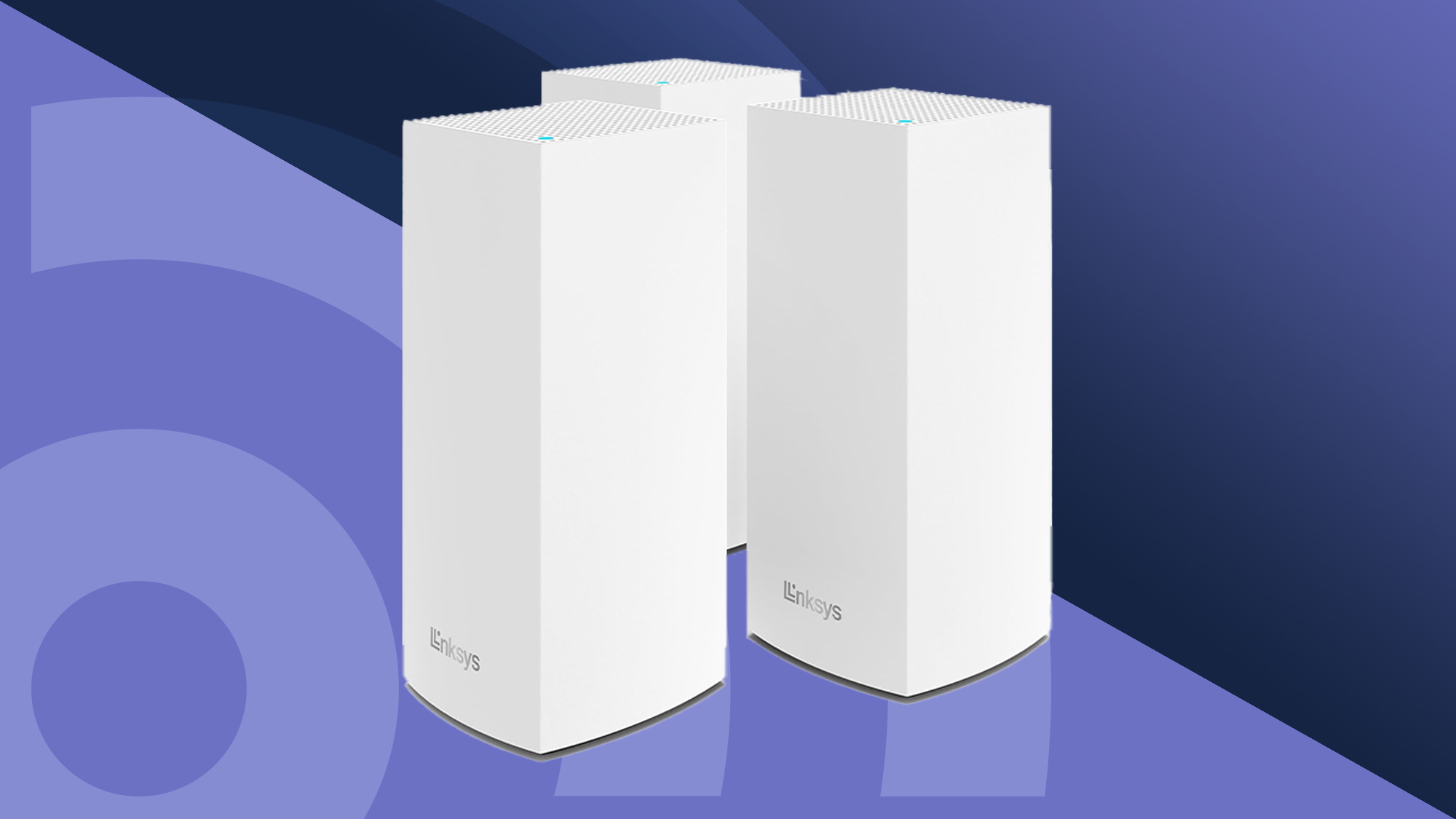The best mesh Wi-Fi systems in Australia for 2025: top systems for home or work
Give your network a makeover and get rid of dead spots once and for all
You’ve signed up for one of the best NBN plans, but now you’re dealing with dead zones and slow internet speeds. This is a common issue, and one of the best solutions is investing in a mesh Wi-Fi system.
Unlike a standard router, which relies on a single device to cover your home, a mesh Wi-Fi system typically consists of a main router and one or more satellite nodes (also called extenders or points). These nodes work together seamlessly to extend your Wi-Fi coverage across larger areas and eliminate weak spots. Mesh nodes don’t have to be expensive, and there are excellent options available to suit various budgets.
That said, if you’re upgrading to ultra-fast internet with one of the best NBN 1000 plans, it may be worth considering a premium router with Wi-Fi 6 or even Wi-Fi 7 technology for optimal performance.
Choosing the right mesh Wi-Fi system can feel overwhelming with so many options on the market. How much coverage do you need? How many nodes will be required? Is a wired setup worth considering?
To simplify your decision, we’ve thoroughly tested the top contenders to help you find the best mesh Wi-Fi systems available in Australia.
The quick list
Here’s our curated list of the best mesh Wi-Fi systems available in Australia. We’ve handpicked a variety of models to suit different budgets and home sizes. You can explore in-depth reviews for each recommendation and find the latest deals with our handy price comparison tool.

Best mesh Wi-Fi system overall
Thanks to excellent performance and coverage, the Google Nest Wifi Pro is our most highly recommended mesh Wi-Fi.
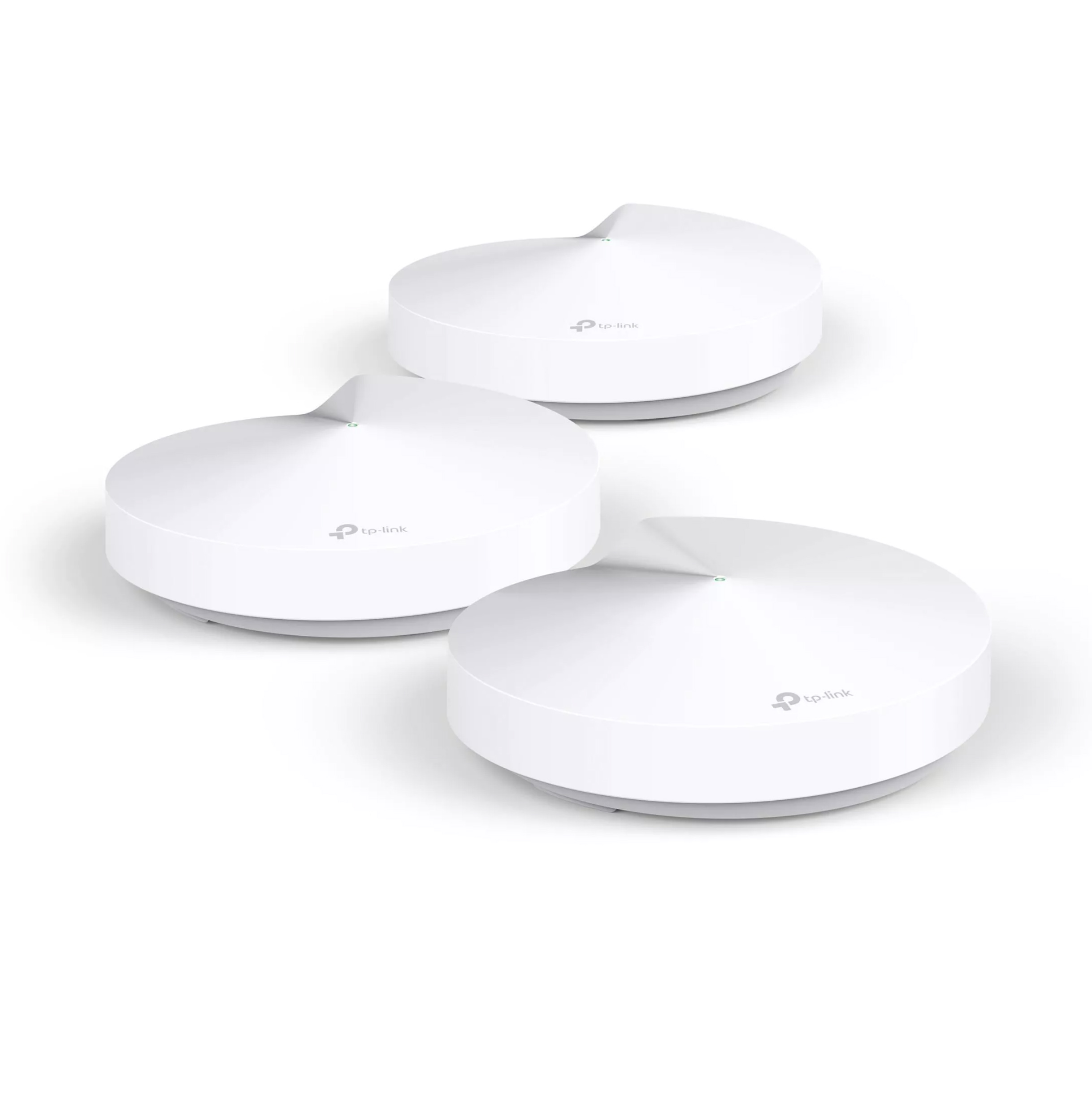
Best budget mesh Wi-Fi system
If you just want much-improved coverage throughout your home and can accept slightly slower speeds, the TP-Link Deco M5 system is hard to beat.
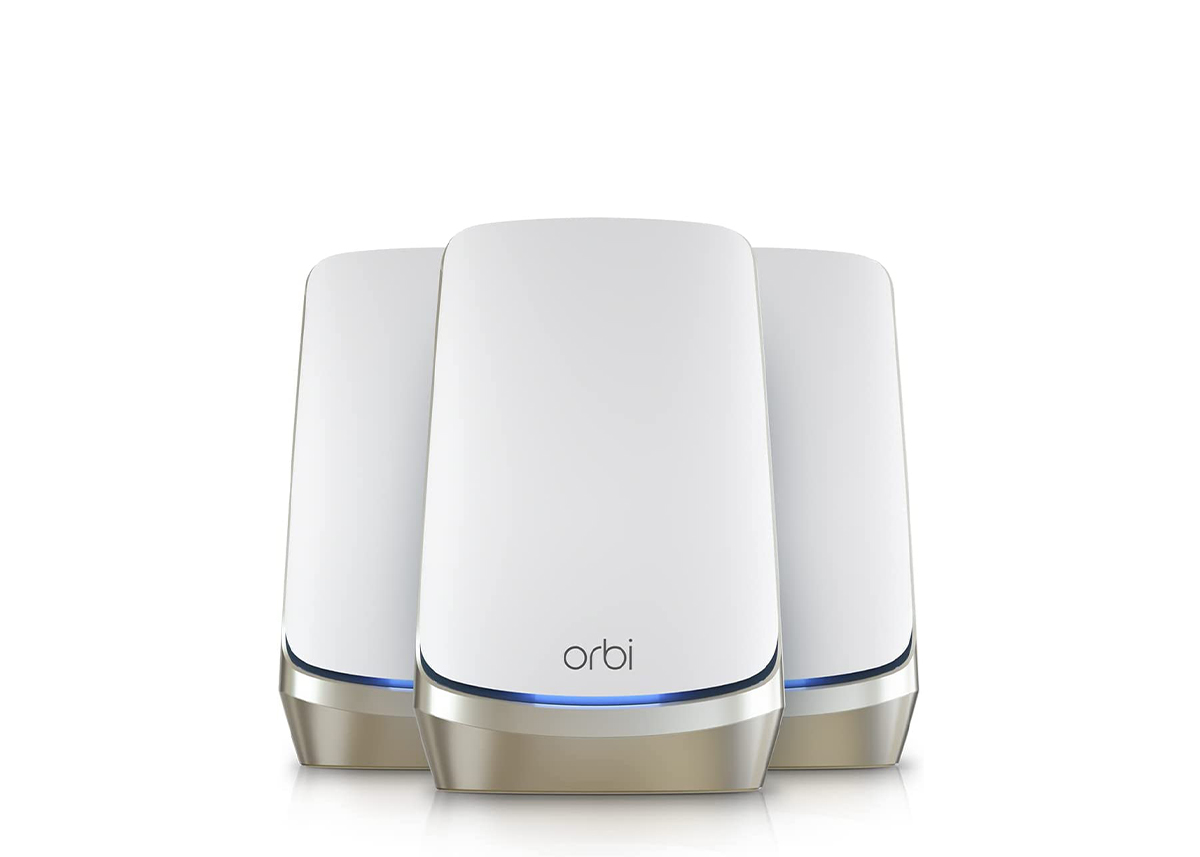
Best mesh Wi-Fi system with 6E
If you have a very large space to cover and multiple users wanting to connect at the same time (and maintain maximum connection speeds), the Netgear Orbi mesh Wi-Fi system is more than up to the task.
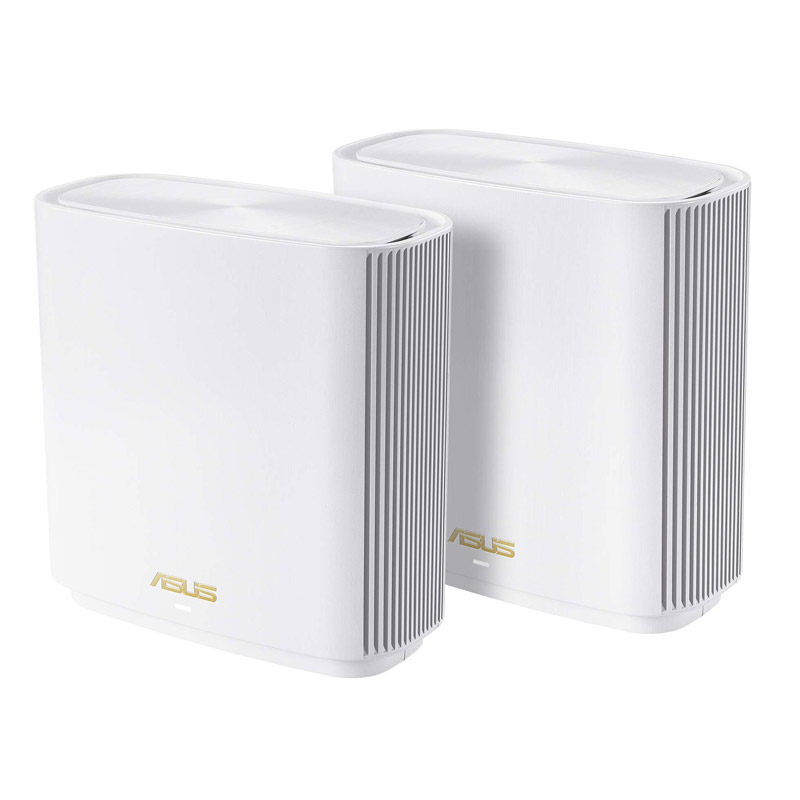
Best mesh Wi-Fi system for gaming
When maximum speeds are essential during online gaming sessions, the Asus ZenWifi AX mesh system will remain stable throughout.
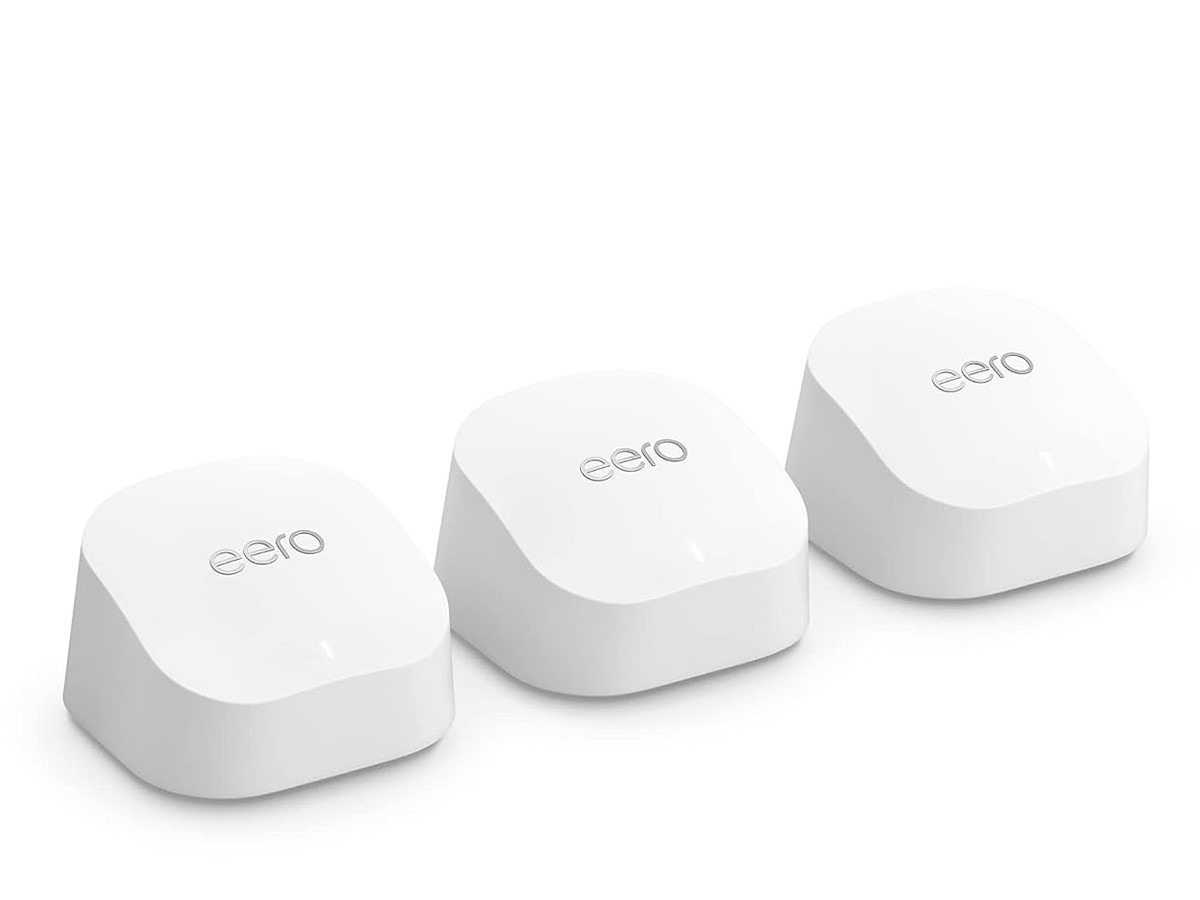
Best mesh Wi-Fi system for homes
It's not the most feature-packed mesh Wi-Fi system on our list, but the Eero 6+ offers simple setup and fast, reliable performance for larger homes.
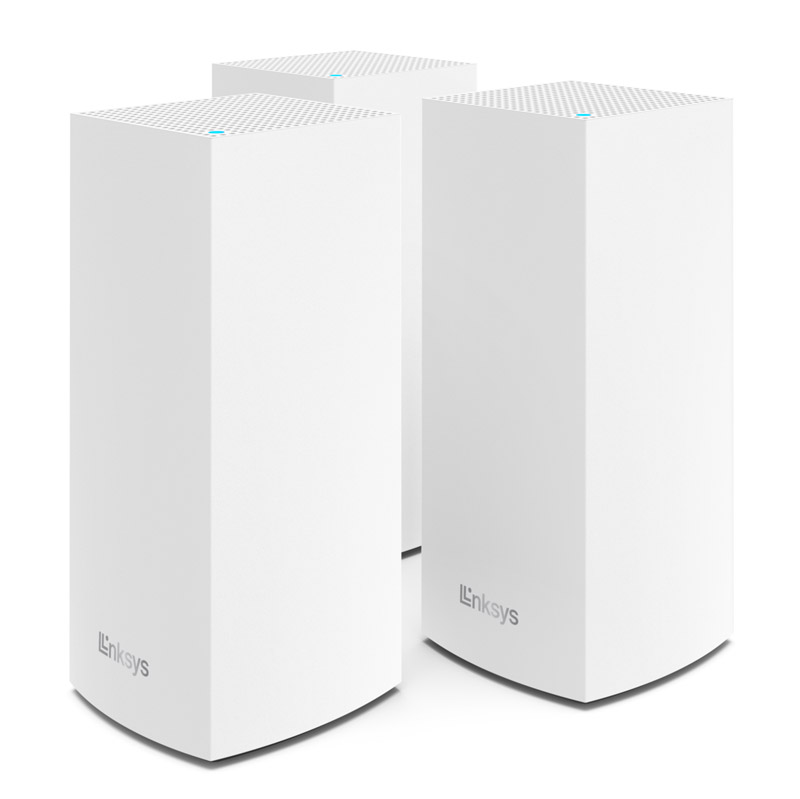
Best value Wi-Fi 6 mesh system
If you want to have complete control over how your mesh Wi-Fi system functions, and take advantage of a heap of extra security features, this mesh Wi-Fi system is just the thing you're looking for.
Reveal the next products...
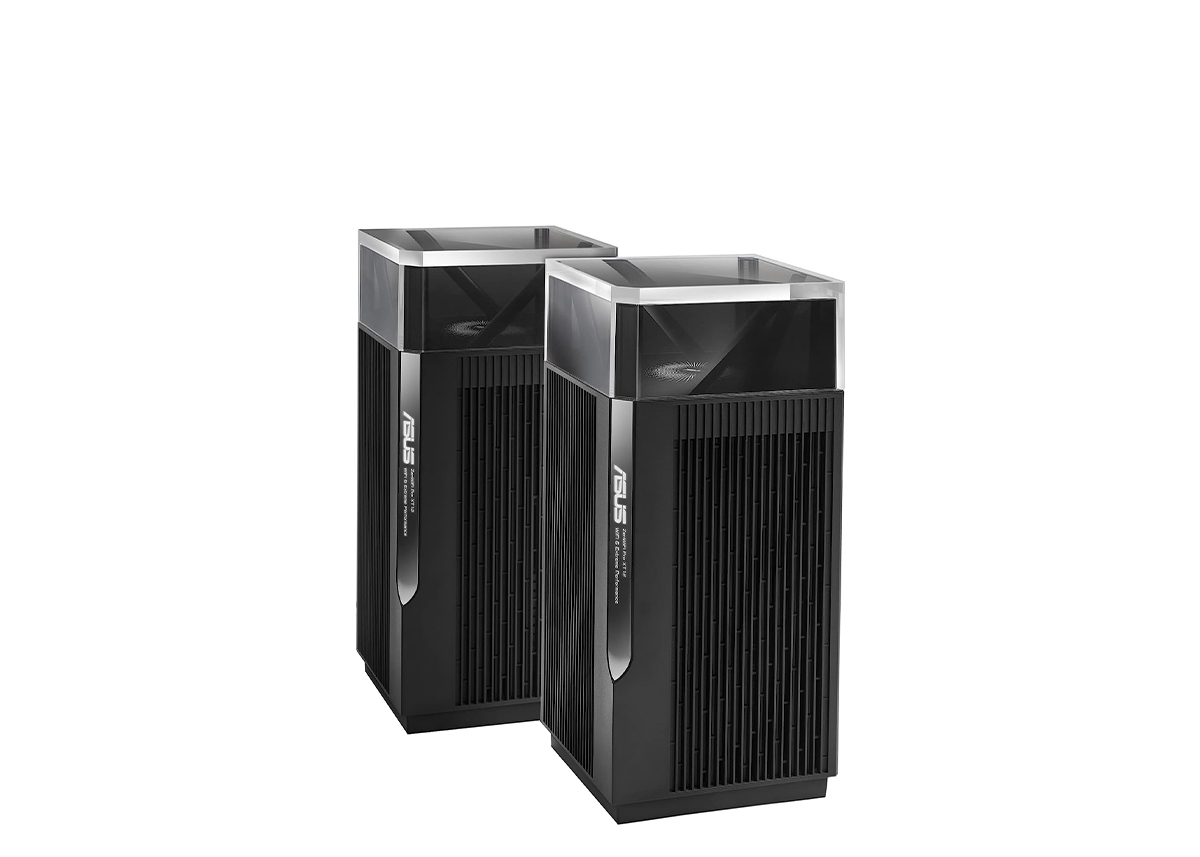
Best 6E for large spaces
If you need a top-of-the-line Wi-Fi 6E performance, this mesh system is designed for large office buildings and businesses with demanding needs.
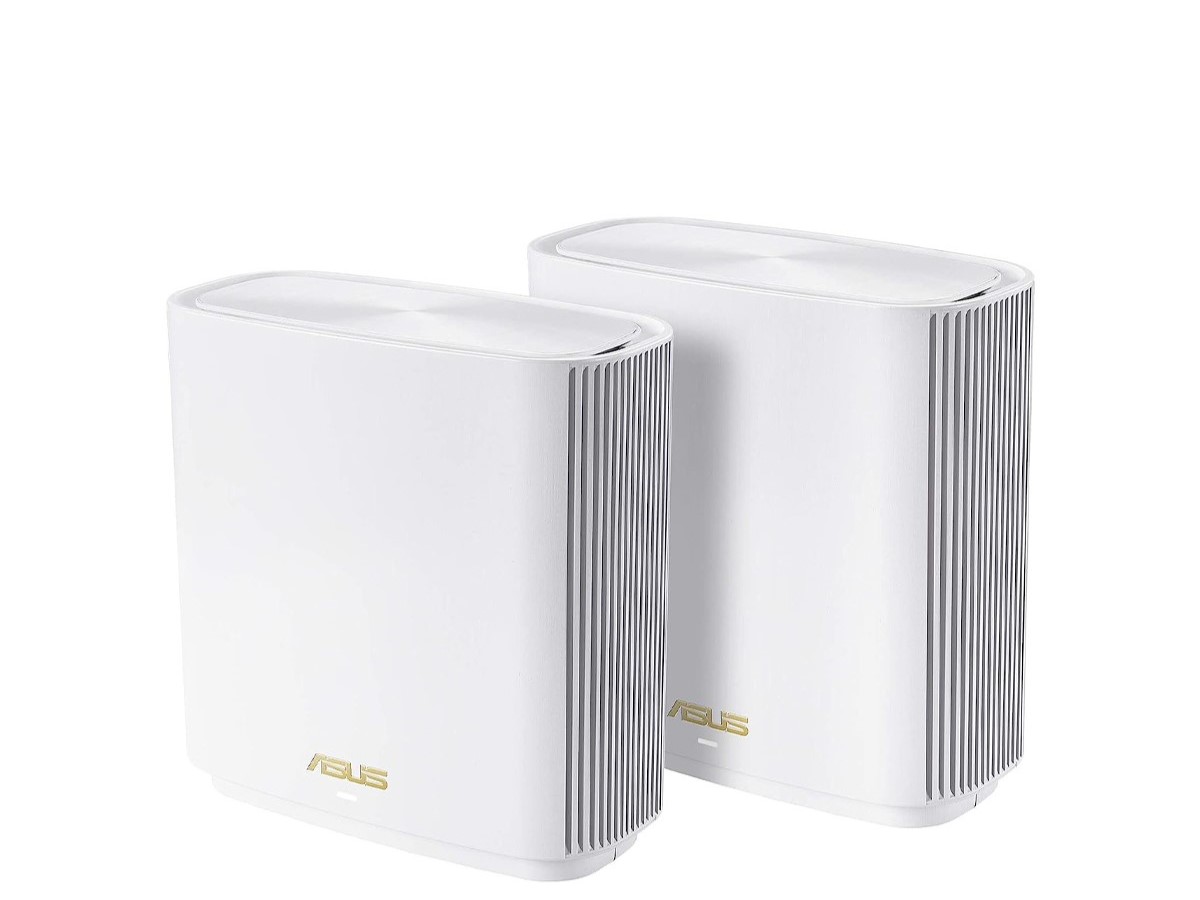
Best value for large homes
If money is no object, large households will appreciate the impressive range, performance and parental controls this Wi-Fi 6 system delivers.
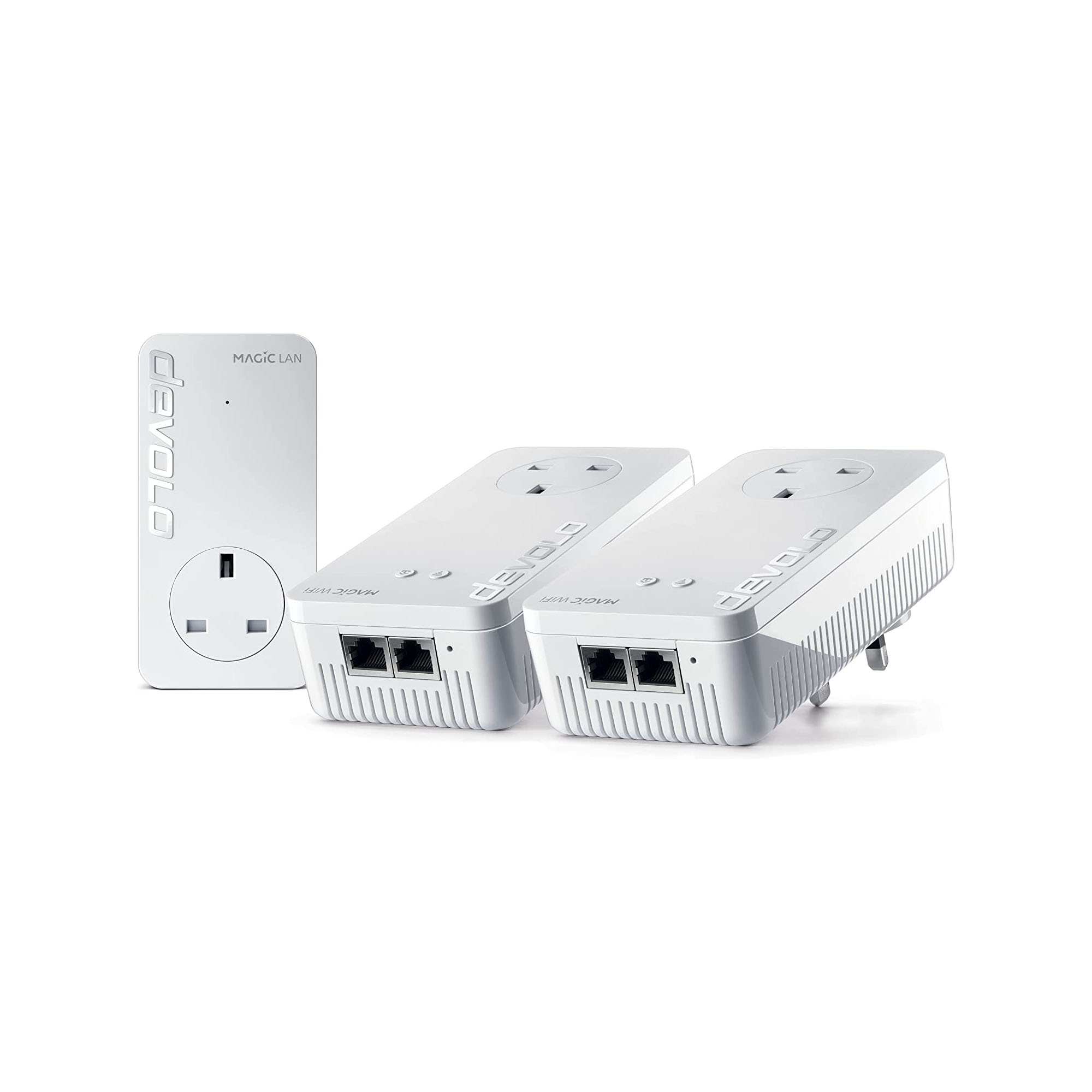
Best mesh Wi-Fi system with Powerline
Lots of walls and obstacles in your home? You need a Powerline mesh Wi-Fi system, and there aren't many better than the Devolo Magic 2.
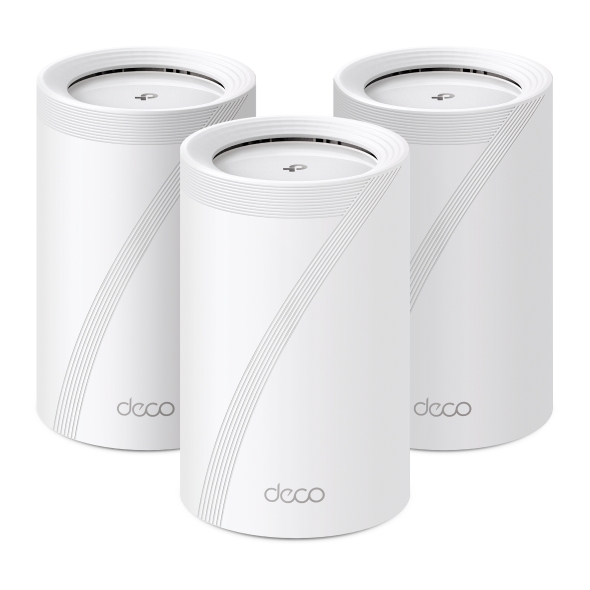
Best Wi-Fi 7 mesh system
The TP-Link Deco BE65 (it's the BE63 in the US) is a relatively affordable yet still feature packed Wi-Fi 7 mesh system with 2.5Gb Ethernet that's ideal for those craving the latest tech.
The best mesh Wi-Fi systems in Australia for 2025
Why you can trust TechRadar
Below you can find more in-depth reviews of our choices for the best mesh Wi-Fi systems, and you can click through the full reviews of each, written by TechRadar's team of home networking experts.
The best mesh Wi-Fi system overall

1. Google Nest Wifi Pro
Specifications
Reasons to buy
Reasons to avoid
Google Nest Wifi Pro is the latest evolution of the company’s popular mesh Wi-Fi system, taking over from the previous Nest Wifi. So, what sets the ‘Pro’ version apart? The most notable upgrade is the addition of Wi-Fi 6 and Wi-Fi 6E, significantly boosting performance compared to the older Wi-Fi 5 only model.
This key update means the shift from dual-band to tri-band Wi-Fi, and now the Nest Wifi Pro supports not just 2.4GHz and 5GHz, but also a 6GHz band. This upgrade enhances coverage and delivers faster, more reliable speeds. While the Pro model does come at a slightly higher price, it provides stronger mesh Wi-Fi performance and better overall network capabilities.
Design-wise, the Nest Wifi Pro maintains a sleek, minimalist look that blends seamlessly into any home. Unlike its predecessor, each unit now includes a pair of Ethernet ports, whereas before, only the main router had them. However, Google has removed the integrated smart speaker functionality found in the previous Nest Wifi. On the upside, the Pro version introduces support for Matter, Google’s latest step toward improved smart home compatibility.
We are still working on our review, but in the meantime, you can check out the still great Google Nest Wifi.
The best budget mesh Wi-Fi system
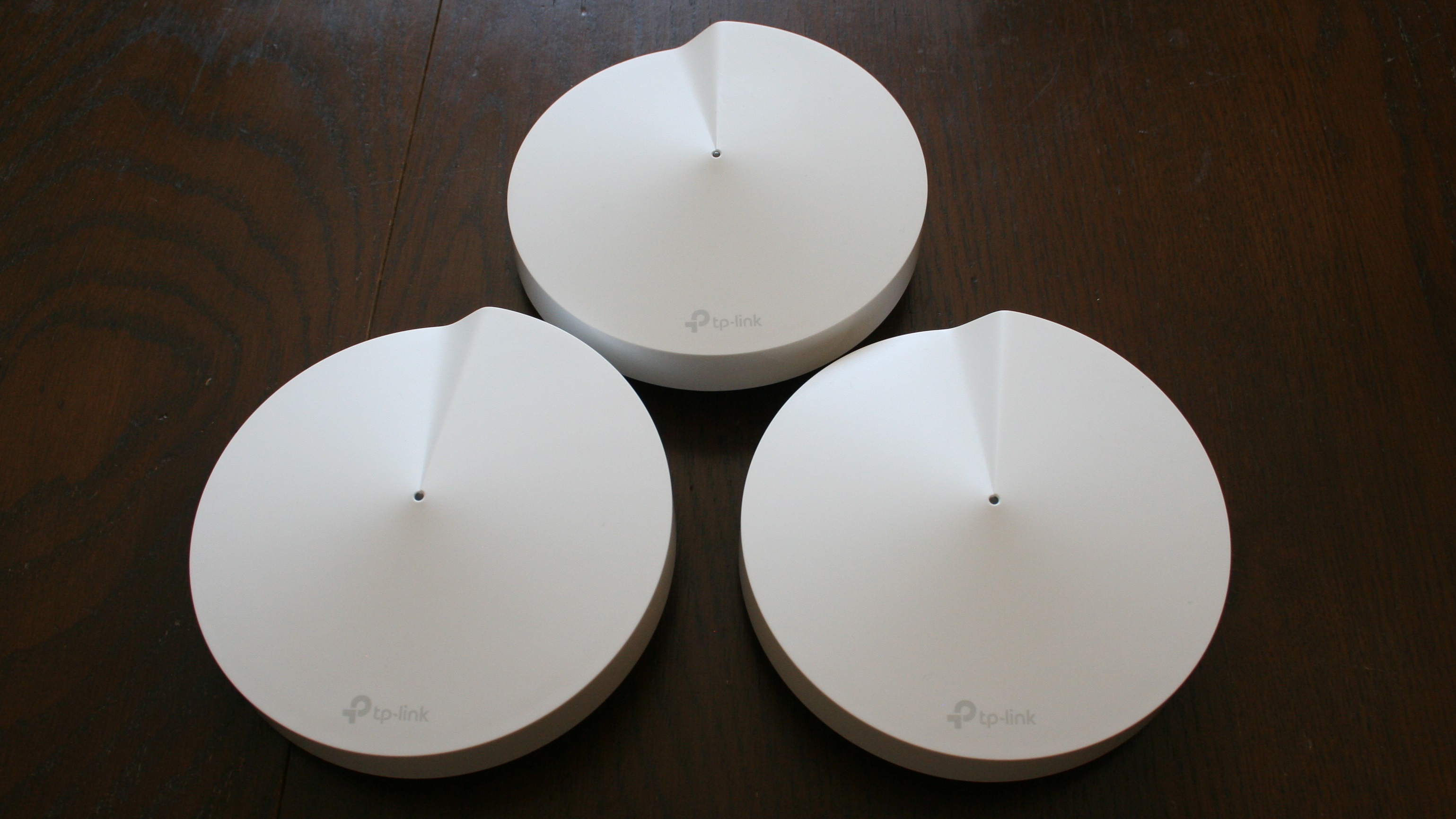
Specifications
Reasons to buy
Reasons to avoid
If you’re looking for a way to spread Wi-Fi throughout your home without having to spend a lot of money, then look into the TP-Link Deco M5. It might not be as speedy as some of the other best mesh Wi-Fi systems on this list, but it's more focused on coverage than high-throughput. However, it did improve our throughput significantly during testing.
Plus, if you’re not too concerned about getting the maximum theoretical throughput, which you probably won’t be able to take full advantage of anyway, this shouldn’t be too much of an issue. Setup, similar to the other devices here, is a breeze, even if you’re not tech-savvy. The TP-Link Deco M5 is among the best wireless mesh routers for those who don’t want to get too technical. And, as it is much cheaper than the rest of the options here, it's also the best mesh Wi-Fi system for budget-minded households.
Read our full TP-Link Deco M5 review
The best mesh Wi-Fi system with 6E
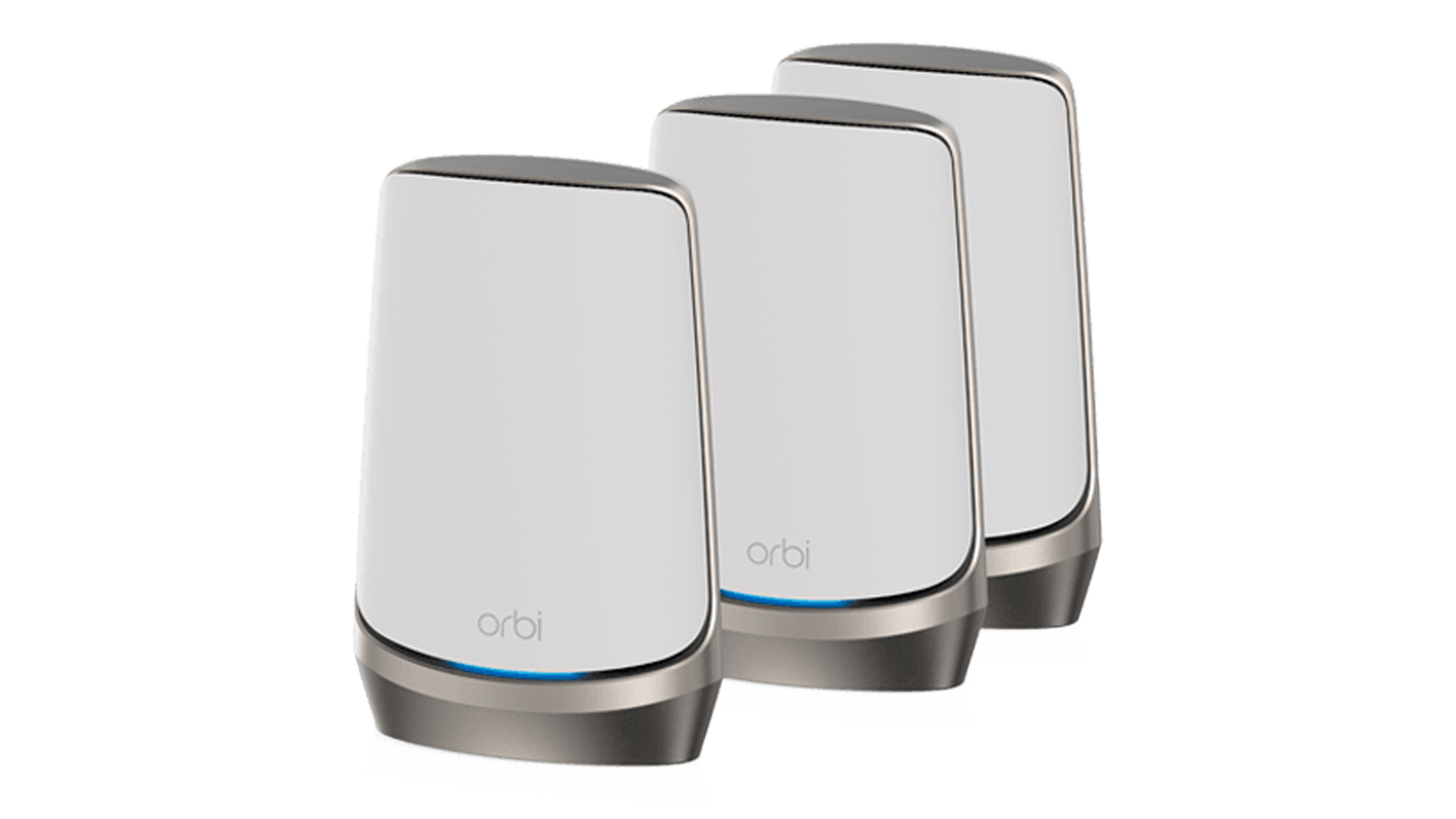
Specifications
Reasons to buy
Reasons to avoid
The Netgear Orbi Quad-Band WiFi 6E’s price is not for the faint of heart. But, if you need a very large space, up to 9,000 square feet, covered then this might be the mesh Wi-Fi system for you. Not only can it cover an incredibly large space but it’s more than capable of handling the most crowded of networks, supporting up to 200 connected devices at a time. And, thanks to its Wi-Fi 6E connectivity – the “E” stands for extended – you get access to an incredibly speedy 6.0Hz frequency band.
By setting one of the Orbi satellites in our back office, which suffers with poor Wi-Fi, it gave us the maximum Wi-Fi speeds right off the bat, maintaining 100Mbps for the Ookla test and 12.5MB/s without fuss. Setting the whole system up is a breeze as well, thanks to the Orbi app being easy to use.
Read our full Netgear Orbi Quad-Band WiFi 6E review
The best mesh Wi-Fi system for gaming
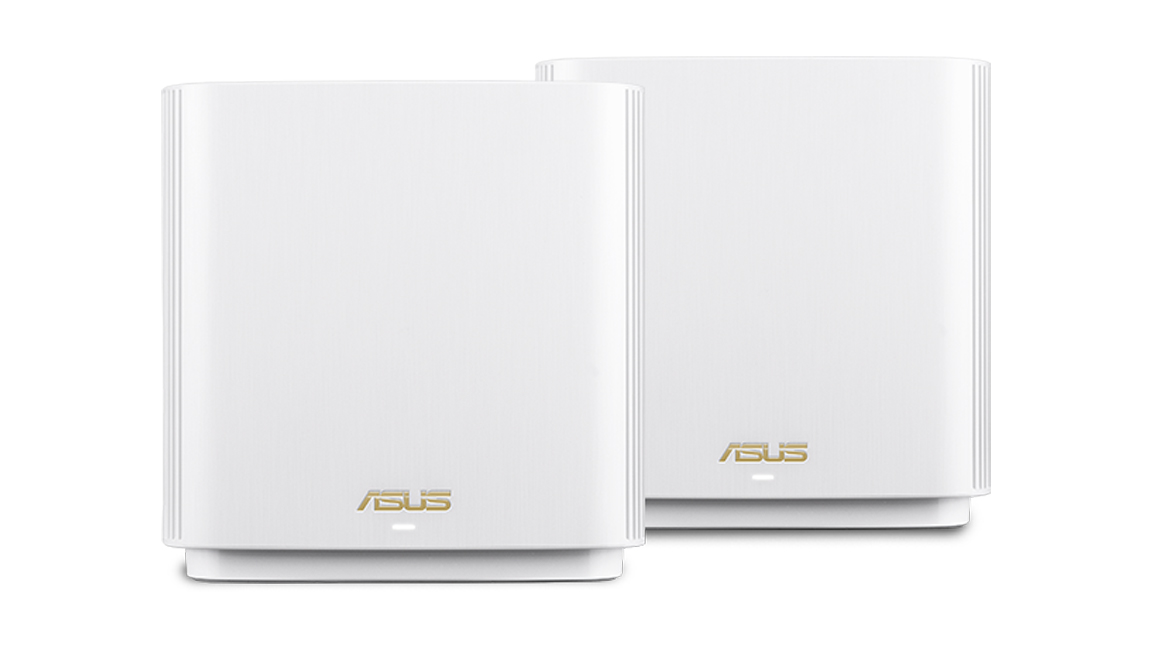
Specifications
Reasons to buy
Reasons to avoid
With the Asus ZenWiFi AX (XT8), Asus has managed to introduce Wi-Fi 6 to that other cutting-edge tech in connectivity; mesh routers. While it is among the more expensive options out there and limits you to two mesh routers, the Asus ZenWifi AX offers blazing fast speeds as well as plenty of flexibility in its setup – such as the option to set up one or two networks using the 2.4 and 5GHz bands.
During our tests, it managed to push our 50Mbps Internet connection all the way, even squeezing it up to 60Mbps at one point. It also held download speeds steady at 7.3MB/s even on the slower 2.4GHz band in an area in our space with previously low connectivity issues.
Set up isn't quite as straightforward. However, with excellent security features to boot, this is a fantastic choice if you’re looking at the best mesh Wi-Fi systems.
Read our full Asus ZenWiFi AX (XT8) review
The best mesh Wi-Fi system for homes
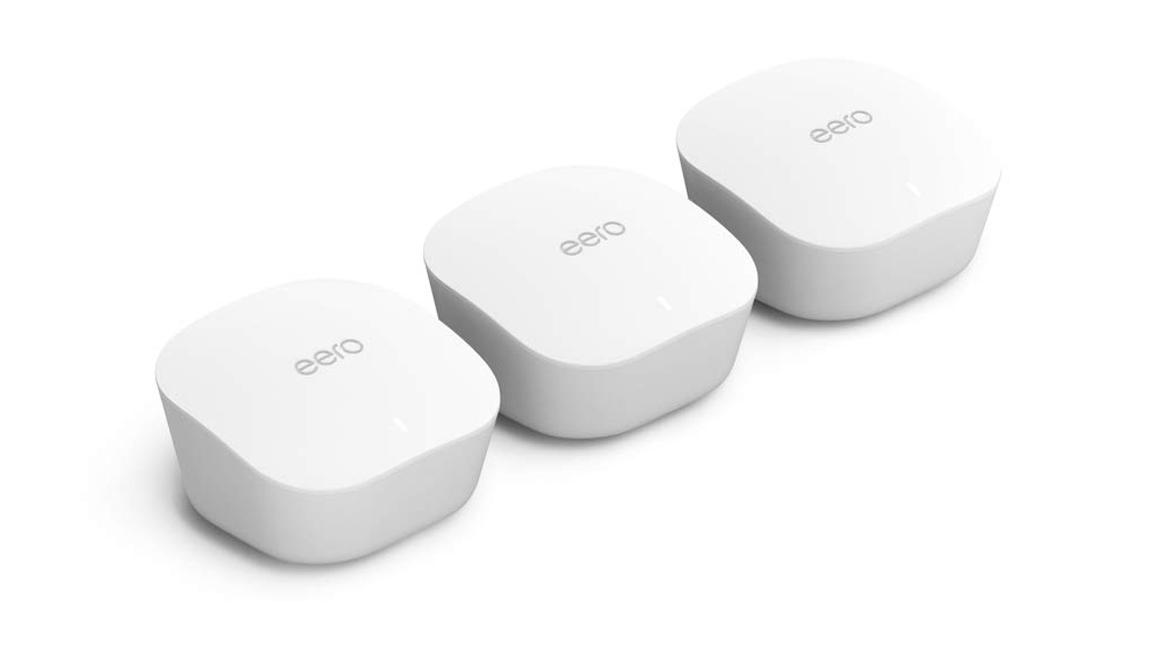
Specifications
Reasons to buy
Reasons to avoid
Eero can often be relied upon to release affordable, reliable routers, and the latest addition to its line, the Eero 6+ doesn’t fall far from the best value tree. It’s competitively-priced and an improvement over its predecessor with its fast and reliable coverage that’s good enough for larger homes.
It maintains dual-band Wi-Fi 6, but it’s almost twice as fast as its predecessor and has a 3.0Gbps top speed. It, of course, performs beautifully in practice, reaching the maximum speed supported by our office broadband connection on Ookla and Steam during testing. Included in the price are new features, such as some additional Ethernet ports, support for the latest smart-home technologies, and support for Bluetooth Low Energy 5.0 and the new low-power wireless technology called Thread.
Sadly, parental controls require a paid subscription and the Eero app feels a little limited in functionality. But, you’re getting a lot of value for your money here.
Read our full Eero 6+ review
The best value mesh Wi-Fi with easy setup
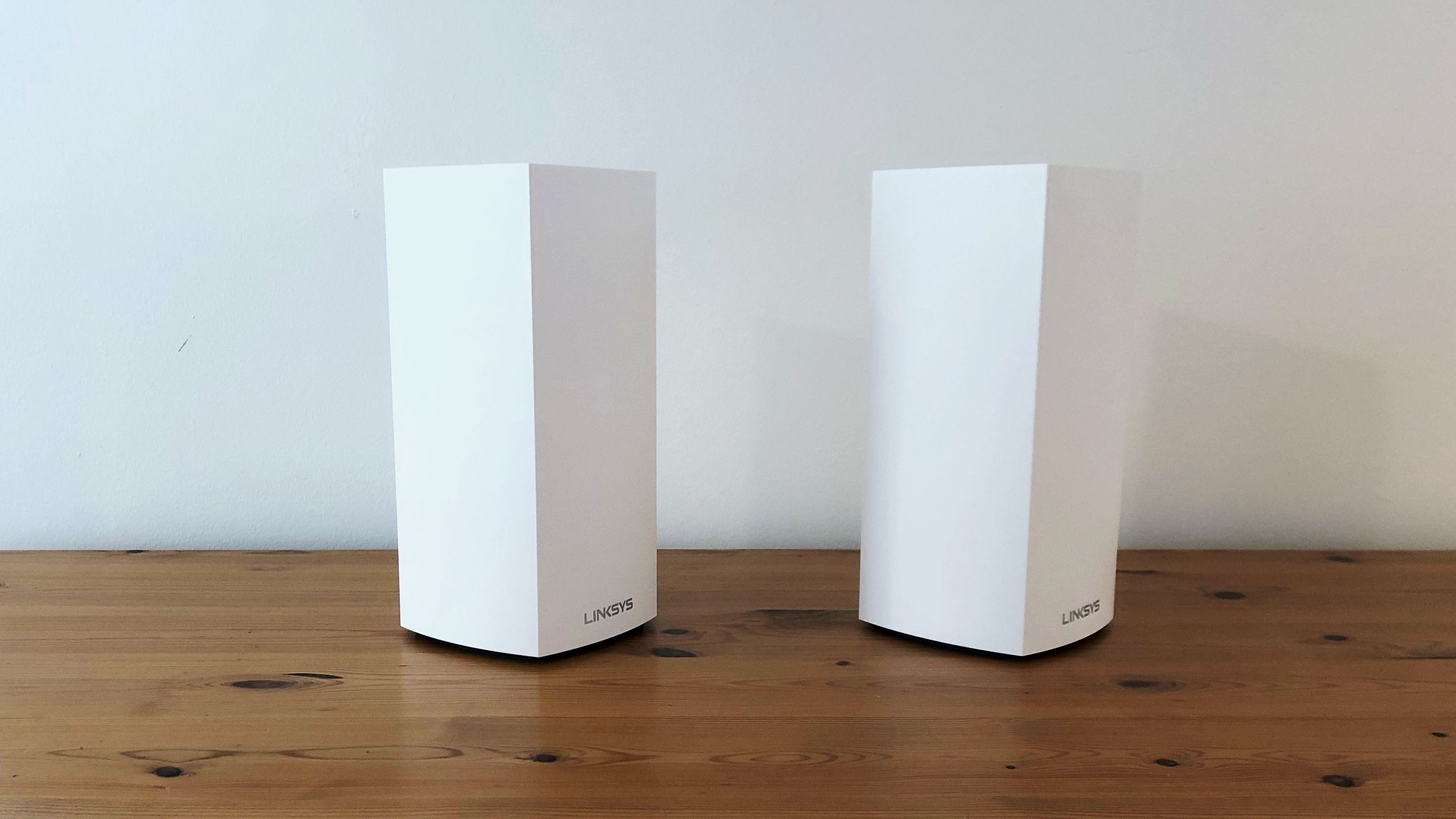
Specifications
Reasons to buy
Reasons to avoid
The Linksys Velop WiFi 6 AX4200 is proof that Wi-Fi 6 mesh systems can be affordable and accessible. It gives big households on a budget an excellent option that still delivers admirable performance and ease of use.
If you want to improve your home network’s speed and connectivity, this state of the art mesh system is an ideal solution. What's more, with Wi-Fi 6 compatibility, it will ensure your home network is future-proof, too. During our tests, it smoothly handed the Wi-Fi signal over to the second node that we placed closer to a harder-to-reach area in our space while maintaining the same speeds seamlessly.
Those who aren’t as computer savvy will also appreciate that easy-to-use Linksys app. It explains everything from connecting to your existing broadband router in order to use its Internet connection to where to place any additional nodes in order to get the best Wi-Fi reception.
Read our full Linksys Velop WiFi 6 AX4200 review
The best 6E mesh Wi-Fi for large spaces
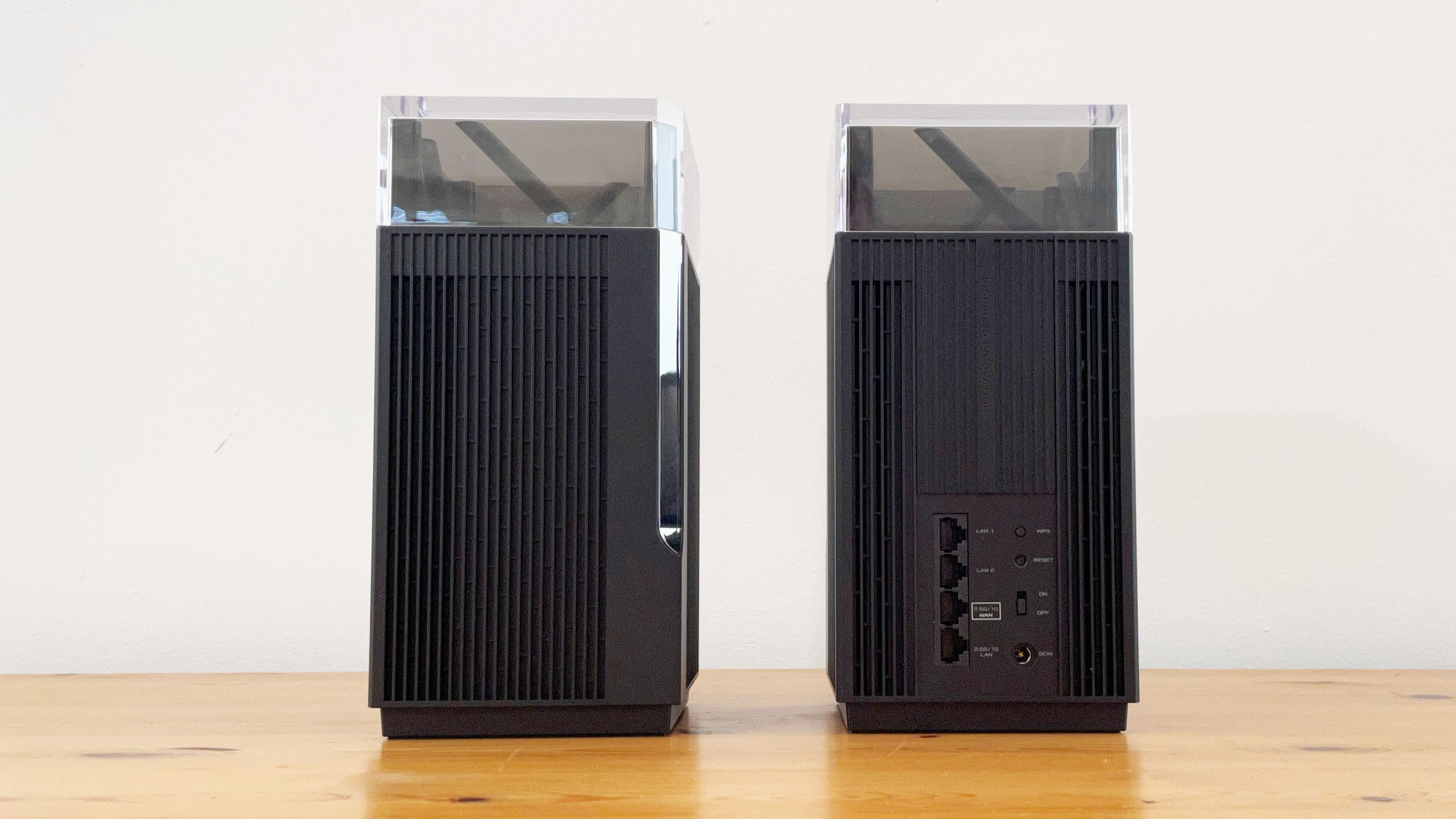
Specifications
Reasons to buy
Reasons to avoid
Larger homes and offices need a much more robust mesh system like the Asus ZenWiFi Pro ET12. This Wi-Fi 6E mesh system might be a bit overkill for most users, but there are still many that will benefit from the level of performance and range it brings – particularly those that have massive spaces and high network demands to cover.
With it, you're getting a top speed of 11Gbps as well as a 6,000-square-foot range (if you get the router and a node set). It delivers in practice as well. During our testing of the two-pack set, the first ET12 gave us the maximum speeds provided by our office broadband service and the second unit allowed us to maintain those speeds, even in the hard-to-reach areas. The support for the new Wi-Fi 6E standard is a plus as well – especially if you've got some new shiny toy that uses it.
Read our full Asus ZenWiFi Pro ET12 review
The best value mesh Wi-Fi for large homes
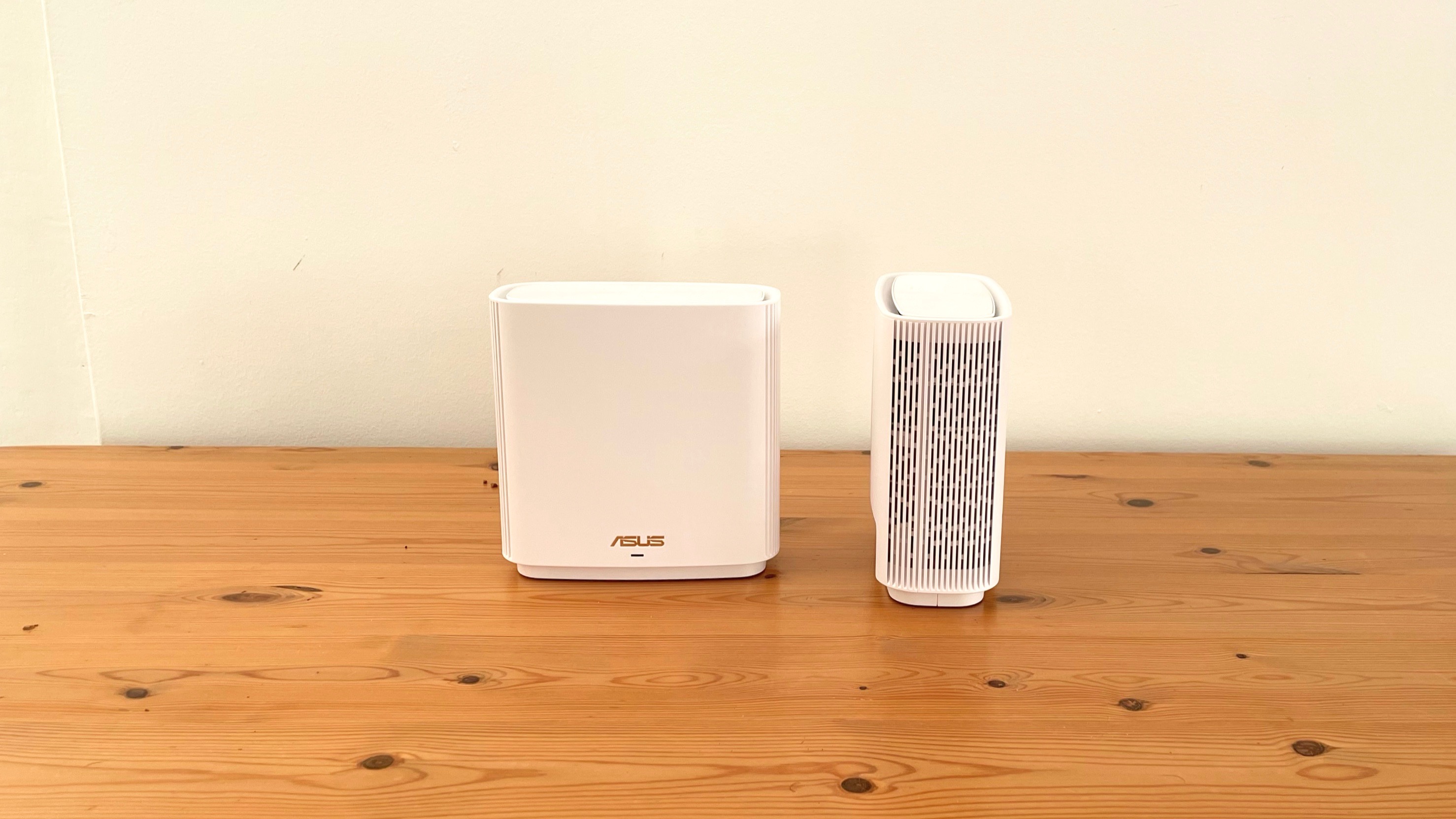
Specifications
Reasons to buy
Reasons to avoid
The Asus ZenWifi XT9 may be an expensive proposition for smaller homes and budget users, but those who have larger areas to cover and a much busier network, this tri-band Wi-Fi 6 router is a wise investment. Its impressive range and strong performance should see larger homes through their bigger demands.
The 7.8Gbps speed will meet the demands of most bigger households, and its 2.5Gbps Ethernet is just as future-proof. We were able to get smooth, steady speeds of 150Mbps and 19Mb/s for Ookla and Steam, even on the slower 2.4GHz band during testing. And, that's in an area where our regular router typically struggles to deliver.
As a bonus, it comes with free parental controls - something many of its rivals actually charge a monthly subscription for, so is great value for families with kids.
Read our full Asus ZenWifi XT9 review
The best Powerline mesh Wi-Fi system
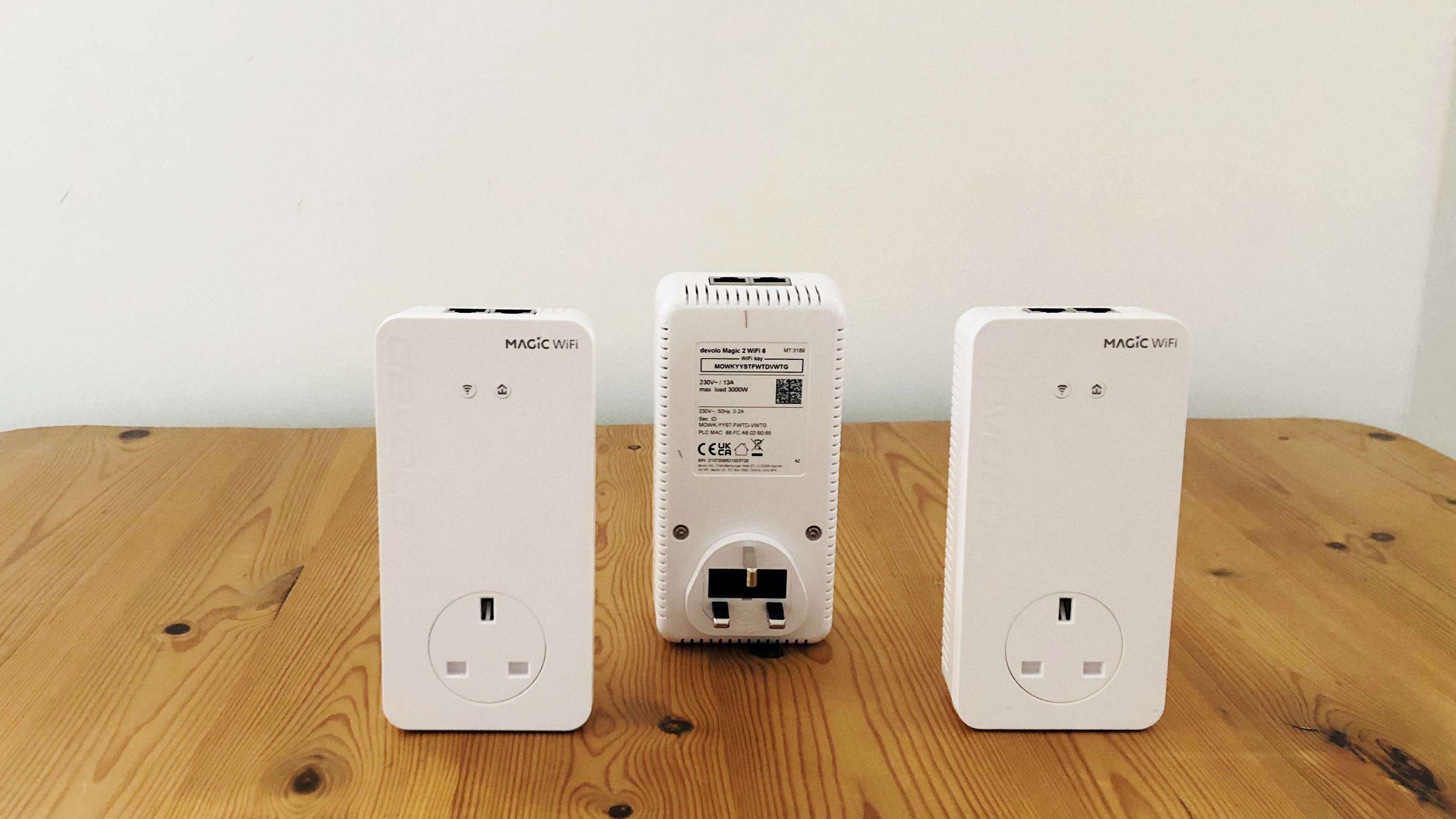
Specifications
Reasons to buy
Reasons to avoid
The Magic 2 WiFi 6 Mesh from Devolo absolutely smashes through thick walls and massive obstructions thanks to Powerline technology, which is far more capable of breaking through obstacles than any wireless signal. This mesh Powerline system allows you to enjoy robust and uninterrupted connectivity throughout your space even when you're dealing with an older space that regular mesh Wi-Fi routers cannot handle.
Of course, if you’ve got a large house or building with a number of rooms to cover, the mesh technology via plug-in adapters also ensures that there aren’t any dead zones or weak areas.
Performance-wise, it slays as well. It had no trouble cruising along at 110Mbps and delivering a rock-steady 12.5MB/s for Steam downloads. Its Wi-Fi speeds are relatively modest, but it’s more than enough for what most general users and households need. And, if you require an even more solid and faster connection, two Ethernet ports per device are on hand.
Read our full Devolo Magic 2 Wi-Fi 6 Mesh review
The best Wi-Fi 7 mesh system

10. TP-Link Deco BE65
Our expert review:
Specifications
Reasons to buy
Reasons to avoid
The TP-Link Deco BE65 takes Wi-Fi to a whole new level of performance, with up to 11Gbps of total throughput. That means it's a great option for those with a lot of bandwidth hungry devices on a network, such as for gaming or streaming 4K video to multiple TVs.
Each BE65 mesh node also has four 2.5GbE wired ports, which can be used to connect to devices without Wi-Fi (such as NAS or desktop computers) or provide wired backhaul to your router for minimal latency. 2.5GbE might seem like overkill right now, but it ensures your network is future proof for a long time to come.
The BE65 also includes options such as VPN support, and TP-Link HomeShield to help make beefing up security and protecting your network even easier. Despite the premium features and spec, the BE65 is surprisingly affordable, and costs less than many slower mesh systems from competing brands.
Read our full TP-Link Deco BE65 review
How we test the best mesh Wi-Fi systems
We test every mesh Wi-Fi router that lands on our desk before we can recommend it to you. Much like with any peripheral or device we test, we check everything from its design and features to its performance.
We take a look at its design, of course, because if you’re going to have several routers spread around your space, they should blend in with your home or office aesthetics. We also check its ports and any extra features it might have – like the ability to create a guest network and set up family controls – as well as ease of initial setup and use.
Then we move on to its performance. We check its range and strength of coverage as well as perform the Ookla speed test and our file download test, jotting down any information we collect. Naturally, we also test it against our everyday network usage to give you a glimpse on its real-world performance.
We then take everything we’ve learned and measure all that against its price tag to see if it offers great value to consumers.
How to choose the best mesh Wi-Fi system
When choosing the best mesh Wi-Fi system for you, there are a few important considerations starting with the size of your coverage area and the speed you require depending on your daily average needs and the number of devices that regularly use your network. Based on that, you need to take a look at the mesh Wi-Fi system's range and performance.
Also take a look at the design, setup process, and ease-of-use for when you need to adjust settings during use. Other features like security protocols and parental controls are important as well, and gaming-focused extras if there are gamers in the family.
Of course, the price is a major factor. Remember that many of the best mesh Wi-Fi routers tend to be expensive. However, you will find more affordable options if you know where to look.
The best mesh Wi-Fi systems in Australia: FAQ
Is mesh Wi-Fi better than a traditional router?
So, should you buy a mesh Wi-Fi router? In some cases, mesh Wi-Fi is considered better than a traditional router, but it really comes down to what you need your Wi-Fi devices to accomplish. If you live in a large home, you may want to consider mesh Wi-Fi in place of a regular router because it can better cover a large area with an unwavering Wi-Fi signal.
Conversely, if you live in a small home or apartment where one traditional router does the job well, you might not need to switch. If you’re a gamer, you may also want to pass on a mesh Wi-Fi router because, as good as a mesh system is, it will never match the speeds one of the best gaming routers is capable of.
Mesh Wi-Fi routers are also typically designed to blend in with home decor, but if you’re someone who doesn’t like dealing with one router, you may not want the responsibility of dealing with a few small ones placed around your home. The best mesh Wi-Fi routers can be a great upgrade for your Wi-Fi signal, but ultimately it’s up to you and if you’re ready to make the change.
The latest updates to this mesh Wi-Fi systems guide
April, 2025
Updated the best options as new products become available.
Get daily insight, inspiration and deals in your inbox
Sign up for breaking news, reviews, opinion, top tech deals, and more.

Lindsay is an Australian tech journalist who loves nothing more than rigorous product testing and benchmarking. He is especially passionate about portable computing, doing deep dives into the USB-C specification or getting hands on with energy storage, from power banks to off grid systems. In his spare time Lindsay is usually found tinkering with an endless array of projects or exploring the many waterways around Sydney.
- James CutlerStaff Writer
- Max LangridgeStaff Writer
- Michelle Rae UyContributor
